| Blogs > Beth1949 > MY WISH AND MY PLEA |
|
HOW, WHEN, WHERE AND BY WHOM...... ...Our staple food was found and started". Well, it's good to know that it was during, THE NEOLITHIC REVOLUTION AND AGRICULTURE ~ Neolithic was a period in the development of human technology, beginning about 10,200 BC, in some parts of the Middle East and later in other parts of the world, and ending between 4,500 and 2,000 BC. Traditionally considered the last part of the Stone Age, The Neolithic is a progression of behavioral and cultural characteristics and changes, including the use of wild and domestic crops and of domesticated animals. The beginning of the Neolithic culture is considered to be in the Levant (Jericho, Palestine modern-day West Bank) about 10,200 – 8,800 BCE. It developed directly from the Natufian culture in the region, whose people pioneered the use of wild cereals, which then evolved into true farming, between 12,000 and 10,200 BCE, and the "proto-Neolithic" is now included in the Pre-Pottery Neolithic.. ~By 10,200–8,800 BCE, farming communities arose in the Levant and spread to Asia Minor, North Africa and North Mesopotamia. Mesopotamia is the site of the earliest developments of the Neolithic Revolution from around 10,000 BCE. ~Early Neolithic farming was limited to a narrow range of plants, both wild and domesticated, which included einkorn, wheat, millet and spelt (a parent of wheat), and the keeping of dogs, sheep and goats. By about 6,900–6,400 BCE, it included domesticated cattle and pigs, the establishment of permanently or seasonally inhabited settlements, and the use of pottery. When more than one human species existed, only one human species (Homo sapiens sapiens) reached the Neolithic. The term Neolithic derives from the Greek , neolithikos, "new stone", literally meaning "New Stone Age". ~Some of the earliest known domestication, were of animals around 13,000 BC. Pigs were domesticated in Mesopotamia (an ancient region of southwest Asia between the Tigris and Euphrates Rivers, now called (IRAQ) around 13,000 BC. It was not until after 9500 BC that the eight founder crops of agriculture appeared: First emmer (species of wheat having 2 grains) and einkorn ( another type of wheat contained one slender grain), then hulled barley, peas, lentils, bitter vetch (herbaceous pea plant), chick peas and flax. These eight crops occur more or less simultaneously on pre-Pottery Neolithic sites in the Levant, although wheat was the first to be grown and harvested on a significant scale. At around the same time (9400 BC), fig trees were also domesticated. ~By 7000 BC, sowing and harvesting reached the fertile soil of Mesopotamia, where Sumerians ( an ancient non-Semitic people of Southern Mesopotamia, (now Iraq) systematized it and scaled it up. By 8000 BC, farming was entrenched on the banks of the River Nile. ~By 7000 bc, sowing and harvesting reached the fertile soil of Mesopotamia, where Sumerians ( an ancient non-Semitic people of Southern Mesopotamia, (now Iraq) systematized it and scaled it up. By 8000 BC, their agriculture relied on the Tigris and Euphrates rivers and then farming was entrenched on the banks of the River Nile. The civilization of Ancient Egypt was indebted to the Nile River and its seasonal flooding. The fertile soil allowed them to build an empire on the basis of great agricultural wealth. Their staple food crops were grains such as wheat and barley, alongside industrial crops such as flax and papyrus. ~The Levant followed by Mesopotamia are the sites of the earliest developments of the Neolithic Revolution from around 10,000 BC. The Neolithic Revolution was a fundamental change in the way people lived. The shift from hunting & gathering to agriculture led to permanent settlements, the establishment of social classes, and the eventual rise of civilizations. The Neolithic Revolution is a major turning point in human history. Evolution of humans derived from it until our era. The Neolithic Revolution ended in about 600 C.E., when people started settling down and empires started developing. It is really amazing to ponder how million years ago, the source of our basic food was discovered, used and farmed. [SIZE 4]IN BRIEF, ~Sumerians were members of the indigenous non-Semitic people of ancient Babylonia. ~The Levant is the region on the eastern coast of the Mediterranean Sea, north of the Arabian Peninsula and south of Turkey, including the area of Israel, Jordan, Lebanon, Palestine, and Syria. Mesopotamia= Now Iraq. The Domestication time of crops and animals: ~Sheep were domesticated in Mesopotamia between 11,000 and 9,000 BC ~Pigs were domesticated in Mesopotamia around 13,000 ~Cattle were domesticated from the wild aurochs in the areas around 8,500 BC. ~ Camels were domesticated late, around 3000 BC. ~The was domesticated in the Pontic steppe( grass land) around 4000 BC. ** It was not until after 9500 BC that the eight founder crops of agriculture appear: First emmer (species of wheat having 2 grains) and einkorn ( another type of wheat contained one slender grain), then hulled barley, peas, lentils, bitter vetch (herbaceous pea plant), chick peas and flax, and fig tress in the Levant. At around the same time (9400 BC), were domesticated. ~In the Far East, In China, rice and millet were their primary crops domesticated by 8000 BC, followed by mung, soy and azuki beans. . ~Maize was domesticated from the wild grass teosinte in West Mexico by 6700 BC. ~The potato (8,000 BC), tomato, pepper (4,000 BC), squash (8,000 BC) and several varieties of bean (8,000 BC onwards), were domesticated in the New World. ~In Greece from 11,000 BC, lentils, vetch, pistachios, and almonds were cultivated, while wild oats and wild barley appear in quantity from 7000 BC alongside einkorn wheat, barley, sheep, goats and pigs, while emmer was used on Cyprus between 9100 and 8600 BC. ~Céide Fields in Ireland, consisting of extensive tracts of land enclosed by stone walls, date to 3500 bc and are the oldest known field systems in the world. ~In Siberia, Cannabis was in use in China in Neolithic times and may have been domesticated there; it was in use both as a fibre for rope making and as a medicine in Ancient Egypt by about 2350 BC. ~In the Sahel region of Africa, local rice and sorghum were domesticated by 5000 BC. Kola nut and coffee were domesticated in Africa. ~The Olmec and Mayans cultivated maize in numerous varieties throughout Mesoamerica, Maize and squash were domesticated in Central America 5600 BC. and had moved into the inter-Andean valleys of Colombia. ~Potato in South America ( Peru and extreme northwestern Bolivia) between 8000 and 5000 BC, and sunflower in the Eastern Woodlands of North America. It has since spread around the world and become a staple crop in many countries. It is really amazing to know how million years ago, our basic food was discovered, used and farmed.... I hope my above blog has given you a good insight on how to the present day, we have got those crops as our staple food. Thank you for your read and views. Happy reading. Lisa.    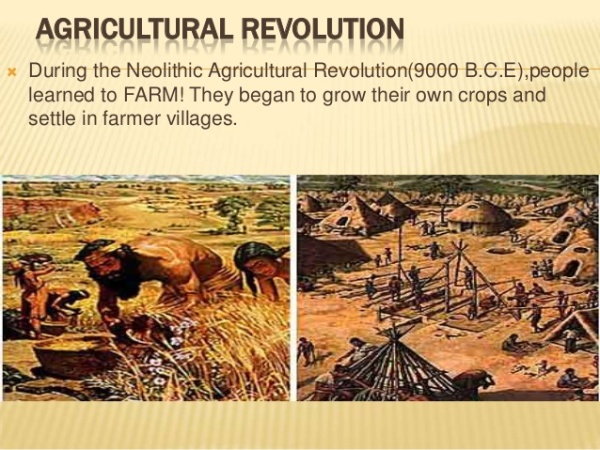 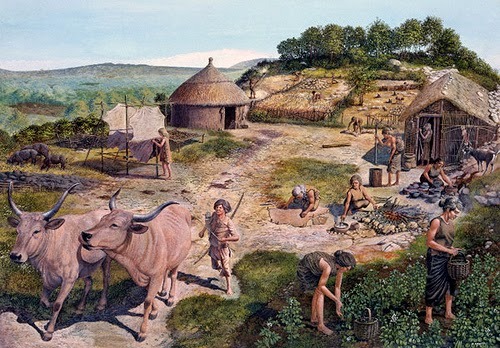  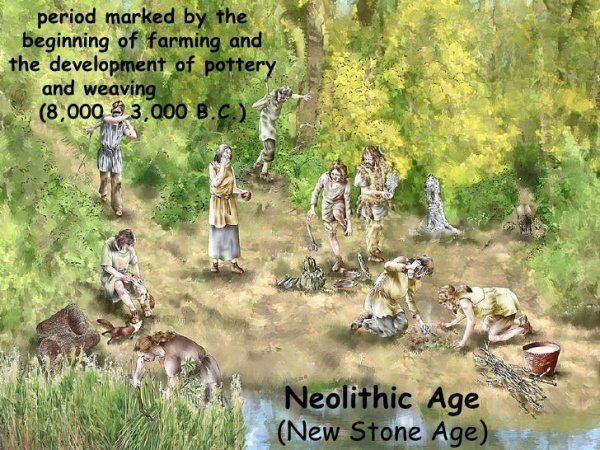 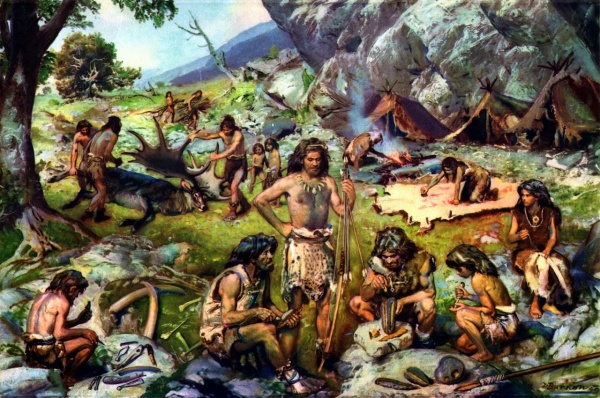    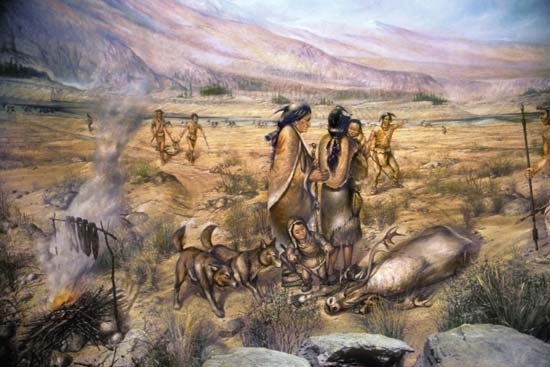 |
|||
|
Remarkable, incredible but thanks to those ancient people who had found the staple food which are needful at least for most of us. 
| ||
|
Fossil hi and Happy Sunday to you, Always great reading from you and to note your appreciation and your interest too. I have come across such an interesting article in a documentary and I felt it right to post this blog for my readers, just as a further knowledge of our staple food. The details are very long but I've tried to shorten them as much as I could by posting the main important ones. Fossil, thank you greatly for your usual visit and your pleasant comments and your input, which I appreciate so much. I like to vary my blogs with some topics which I guess and hope would interest the readers. I also have another new blog concerning the Homo Sapiens, how their skin color had changed during their ventures. I hope to post it soon, an interesting one really. Thanks again Fossil, I wish you and your family, a wonderful coming week. My kind regards. Lisa, 
| ||
|
TrumGal, hi and good day to you, You are most welcome to my blog, TrumGal. It's my great pleasure reading from you, maybe for the first time but as it is said, " There should always be a first time". I do appreciate your visit and comments and hope to read from you again in the future. I wish you and your family, a great coming week. Thanks again TrumpGal,. My kind regards to you. Lisa, 
| ||
|
Very interesting Beth!! I love anthropology!! I wonder what our ancestors would think of the conspicuous over consumption now when for them it was a matter of survival. 
| ||
|
Rocket dear, hi and happy Sunday to you, You are correct in your point of view, Rocket. Regarding what our far ancestors consumed comparing to our present consumption , there's an immense difference really. They were more healthy, robust and hard working, though poorly clothed, roughly sheltered, and ate what were just available. We have all the facilities now, all up-to-date technology but not as healthy as they were during their era. All types of chemical and pollution in our soil, have changed the course of the natural growth of our agriculture. Be it our vegs, cereals and our animal products. All sort of unbelievable disease our new world and population are suffering from. Remain to ponder upon. Thank you again Rocket, enjoy a pleasant day with all of yours. My kind regards to you. Lisa, 
| ||
|
Very interesting. Thank you Lisa. Have a great new week!
| ||
|
Hi Tom, Always a pleasure reading from you on my blog. You are quite right about the fancy foods we always tend to ameliorate by adding types of flavors, fat and dairies. Truly they taste wonderful in the mouth but their side effects are others. Just as the fast food too and regrettable as well. We have become too sophisticated, maybe too advanced also and too much competition in developing new menus too!! If we look back, we'll find that those ancient people ate better than us and more healthily too, though very far from developed. Thank you again Tom for your meaningful input. I wish you all my best, keep well and happy always. Kind regards. Lisa, 
| ||
|
Lucy, my kind Lady, hello, Wonderful photo of yours really. Thank you once more for your kind visit and appreciation of this blog of mine. It's my keen pleasure reading from you always. Am glad my above blog has brought you some interest as it is always good to know about our staple foods. I hope you have had an agreeable weekend and I do wish you a pleasant coming week. God bless you Lucy. With my kind regards and warm hugs, Lisa, 
| ||
|
Thank you again for a very educational blog. I had all I needed to eat as a child because of loving parents. Most of it was not known as fancy food but it was quality food. Now, sadly I learned in later years there were those children near me who did not enjoy the food which I did.. That has always made me sad that I was too young to know. Even now, I am irritated to read or hear from others about the things they will not eat. I always look forward to your blogs and want you to know I appreciate them. . The beginning of life, conception..
| ||
|
Hugh, welcome back on my blog, Being away from blog land for sometime, I understand quite well, how busy you have been. I am very delighted you have taken your precious time to pass by my recent blogs and to kindly left your appreciable comments which light them up as well. Thanks so much Hugh. I knew this above one would interest you in particular.. Thank as well for your meaningful words, it's so true that many of us have become so fussy about the food nowadays, sadly they don't realize how our ancestors had fed us with the quality foods really, comparing to what it is now. Enjoy a lovely weekend Hugh and my kind regards to you and all of yours. Lisa, 
|
×
×





